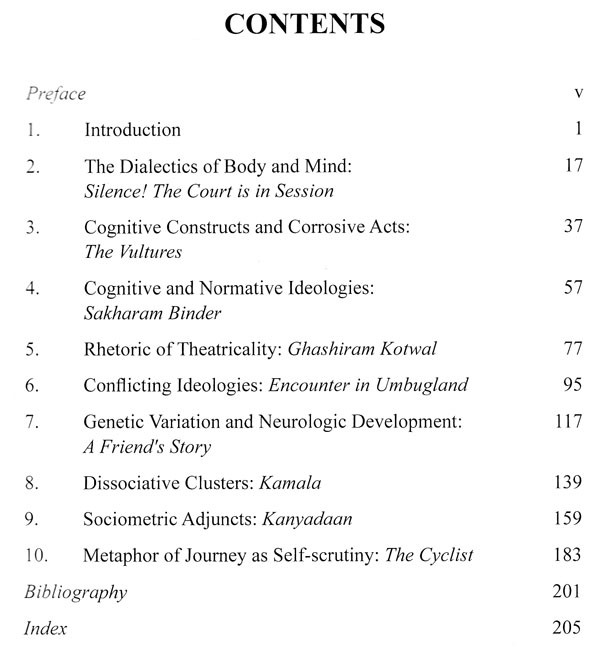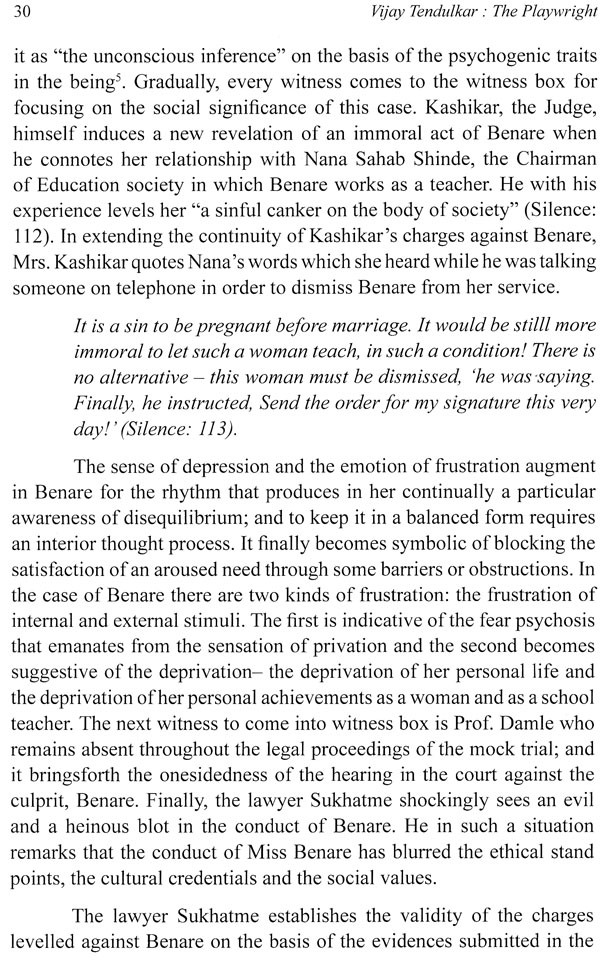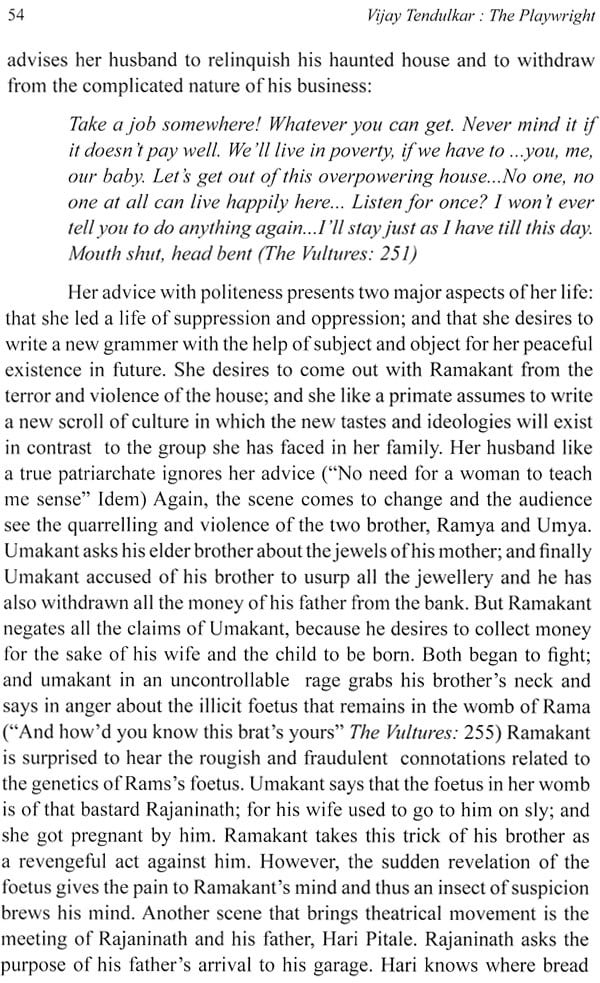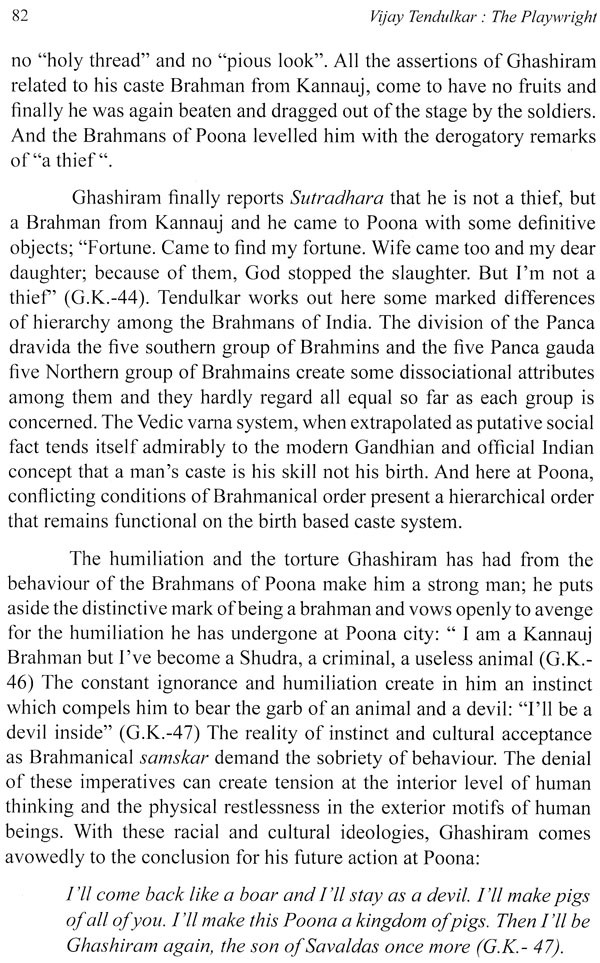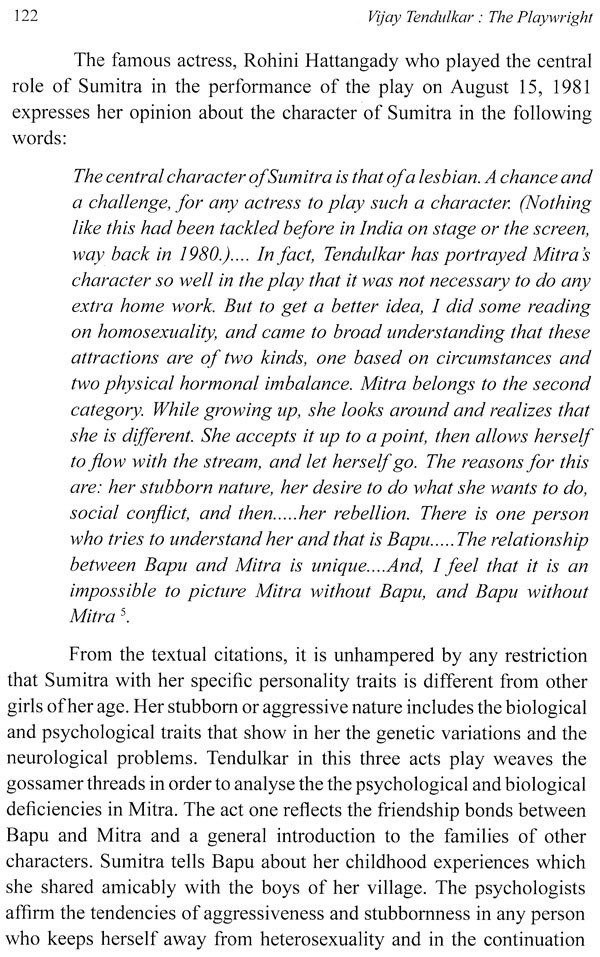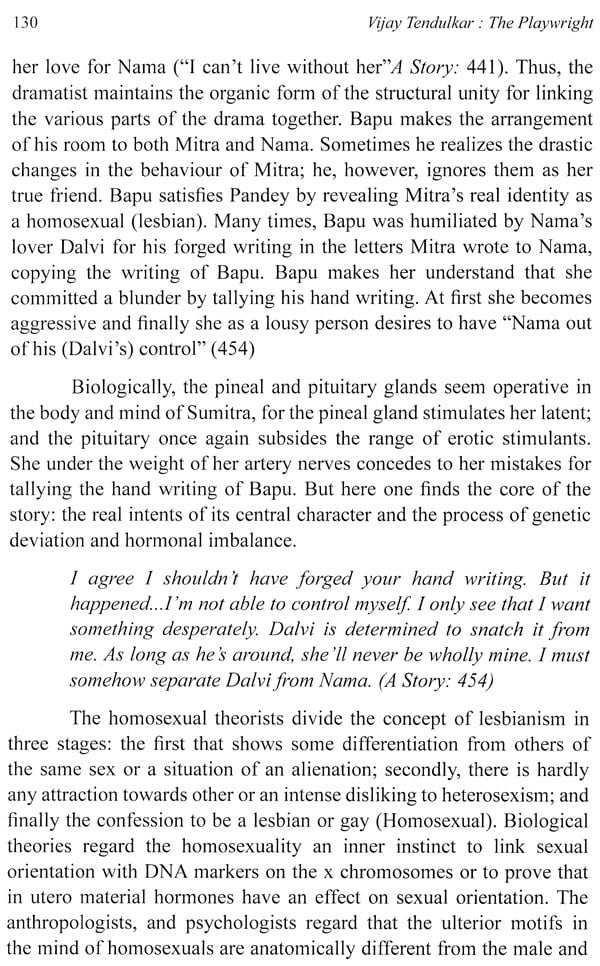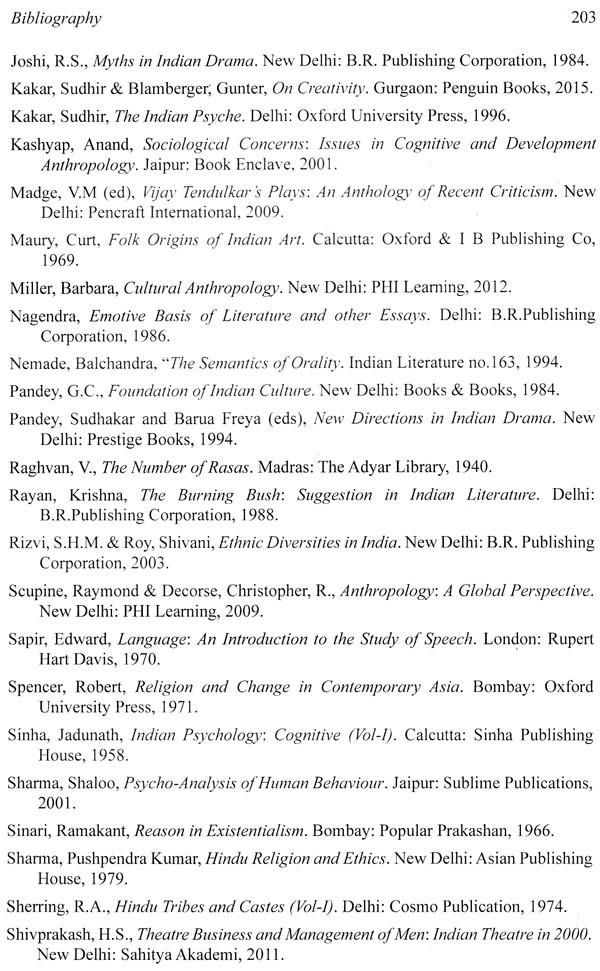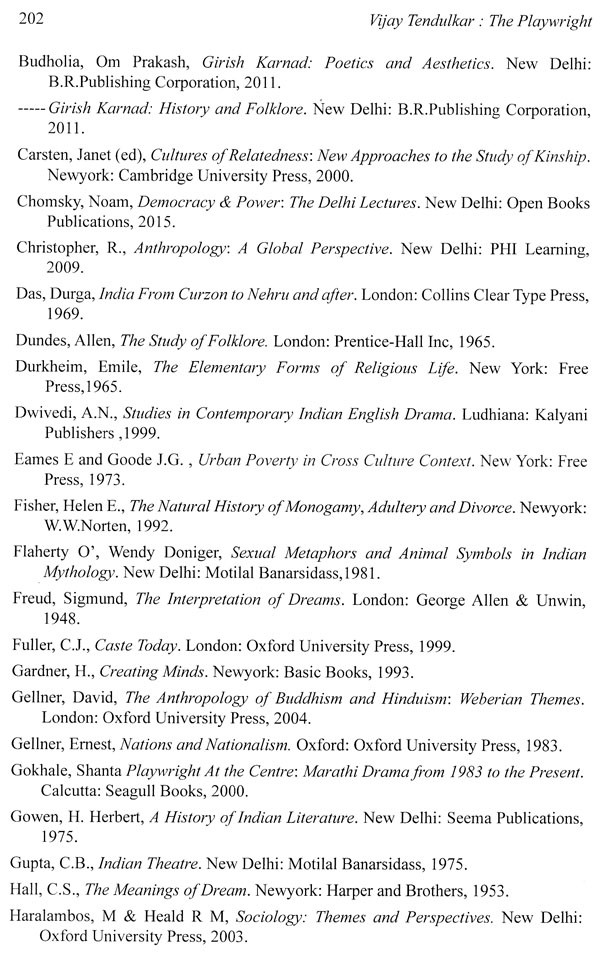
Vijay Tendulkar- The Playwright
Book Specification
| Item Code: | UAW009 |
| Author: | Om Prakash Budholia |
| Publisher: | B.R. Publishing Corporation |
| Language: | English |
| Edition: | 2019 |
| ISBN: | 9789388789097 |
| Pages: | 419 |
| Cover: | HARDCOVER |
| Other Details | 9.50 X 6.00 inch |
| Weight | 540 gm |
Book Description
The art of drama with its tripolar structure (writing, staging and watching) aims at arousing the intensity of human emotions and the basics of human life. Vijay Tendulkar as a dramatist invents and explores the limit and possibilities of social and relational meanings almost in all his plays. The algorithmic and holistic thought process that apparently involves in the structural design of Vijay Tendulkar's plays is conditioned by society. The conflicting conditions induced in the thematic contents and in the visionary purposiveness assert an integral relation between the organic form of society and the existence of an individual. Apart from Introduction, this book analyses the nine plays of Tendulkar, and they thus make up the nine core chapters of this book. Silence! The Court is in Session brings into being the dialectics of body and mind; it also analyses the behavioural norms and relational bonds. The Vultures interprets the social meanings and the new definition of familial relations. The next two chapters, Sakharam Binder and Ghasiram Kotwal bring into light the egoistic propensities of the protagonist; and the other one reveals the historical events that rotate around Nana and Ghasiram for showing the unlimited passions and the fulfiIment of overblown ambitions. Encounter in Umbugland presents a political allegory and exposes the ambition and clever manoeuvring of the power-pronged politicians. A Friend's Story studies closely and carefully the social acceptability of an issue like homosexuality. Kamala with its dissociative clusters exhibits the jibe of Journalism and it also analyses in some details the female centric ideologies. Kanyadaan breaks down the sociometric adjuncts, revealing the specifics of the hierarchical structure of Indian society. The Cyclist rotates around the metaphor of journey which suggests the self security of the being in the process of becoming. Written with the clarity of perception, this monograph in the present format will be useful to both the students and scholars alike.
Dr. Om Prakash Budholia, formerly Professor of English in M.P. Higher Education Service, was Chairman, Board of Studies in English, Jiwaji University, Gwalior and Chairman, Central Board of Studies in English Madhya Pradesh. He has edited many compulsory textbooks of M.P. Hindi Granth Akademi for undergraduate students. He has attended many seminars and conferences and has delivered invited talks and lectures in conferences and other UGC sponsored refresher courses. He is on the Board of advisors for the following scholarly journals: The Quest (Ranchi), The Journal of Contemporary Literature (Allahabad) Indian Ethos (Karnal), and Literary Herald (Chitrakut). In addition to reviewing books, writing introductions and forewords, Dr. Budholia has published over fi fty papers and serious articles. He is well known for his books in India and abroad. His full-length studies are: George Eliot: Art and Vision in Her Novels (Delhi: 1999), Anita Desai: Vision and Techniques in Her Novels (Delhi: 2001), Critical Essays on Indian English Literature (Jaipur: 2003), Girish Karnad: History and Folklore (Delhi: 2011), Girish Karnad: Poetics and Aesthetics (Delhi: 2011) and Vijay Tendulkar: The Playwright (Delhi: 2018). He has also edited the following books: Generic Manifolds: Indian English Literature Since 1950 (Delhi: 2008), Seeds in Spring: Contemporary Indian English Poetry, Drama and Critics (Delhi: 2008), Indian English Literature: Retrospect and Prospect (Jaipur: 2010).
The gamut of dramatic art entails the tripoler design: writing. staging and watching. This thus brings forth the specification of the writer, the theatrical skills and the audience. There hardly exists any similarity between the reading of a dramatic text and the text being performed on the theatrical stage. The art of theatre enjoys its prerogative to change the text of drama according to the situational and contextual realities. The art of drama aims to arouse emotions in order to analyse the interior regions of human psyche. Vijay Tendulkar as a dramatist undergoes such experience almost in all his dramatic texts. As a dramatist, he holds a distinct and widely acclaimed place among the contemporary Indian dramatists. He selects such real events and incidents as to galvanize his realistic vision in the text of his plays. His long stay with the lower or lower middle classes at Mumbai made him realize the actual problems and the inner suffering of these marginal people. He finally analyses such characters who come to his mind as the marginal sections of society.
The drama as the literary genre brings into focus the two distinct features of life: the theory and its application in the performing art. Apart from describing tradition as continuity of the form and technique, the art of drama leaves space for suggestive values of life and after. The emotional range included first in its contents and then in performing qualities becomes a device for man to be judged in his actions. With its anthropological and psychological qualities, the art of drama brings into being the mimetic representation of human life. The history of drama is as old as the existence of man on this earth. Indian drama written either in English or translated from vernacular into English showed a slow growth in comparison with other genres of Indian English literature. The earlier writings of dramatic art in the hands of Krishna Mohan Banerjee, Madhu Sudan Datt, Rabindra Nath Tagore and Sri Aorobindo brought forth some positive signs for the development of this genre. KRS Iyenger does not find an agreeable atmosphere for the development of drama as the genre of literature:
Modern Indian dramatic writing is neither rich in quantity, nor on the whole, of high quality. Enterprising Indians have nearly a century occasionally attempted drama in English but seldom for actual stage production.
The growth of the genre of drama might be slow but it flourished incessantly through the writings of the dramatists such as Krishna Mohan Banerjee, Madhu Sudan Datt, Sri Aurobindo, Rabindra Nath Tagore.
**Contents and Sample Pages**

